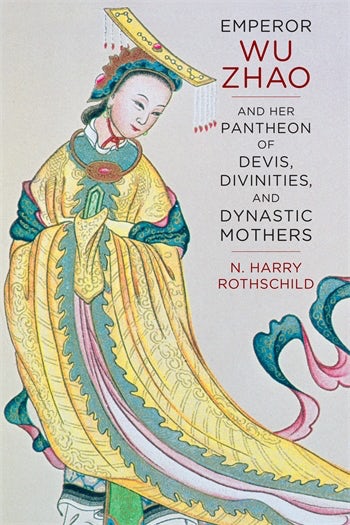Michael Fischbach Speaks at the UN on Palestinian Refugees
 On Friday, June 20th, Michael Fischbach spoke at a special meeting at the United Nations to mark 60 years of dispossession of Palestine Refugees. As several speakers noted the question of Palestinian refugees is the longest standing crisis on the agenda of the United Nations still awaiting solution.The committee chairman expressed concern that the issue of Palestinian refugees has moved to the periphery of the attention span of the international community while at the same time it is being exploited by extremists on both sides of the issue.
On Friday, June 20th, Michael Fischbach spoke at a special meeting at the United Nations to mark 60 years of dispossession of Palestine Refugees. As several speakers noted the question of Palestinian refugees is the longest standing crisis on the agenda of the United Nations still awaiting solution.The committee chairman expressed concern that the issue of Palestinian refugees has moved to the periphery of the attention span of the international community while at the same time it is being exploited by extremists on both sides of the issue.
Michael Fischbach, author of Records of Dispossession: Palestinian Refugee Property and the Arab-Israeli Conflict and the forthcoming Jewish Property Claims Against Arab Countries (July 2008), argued that the essence of the refugee problem as it emerged in the 1950’s has essentially remained the same: that Israel has continued to rule out restitution and compensation.
Fischbach, who is also a professor of history at Randolph-Macon College, also looked at the historical conditions of the refugee issue. The following is a summary of his remarks as provided by the United Nations Department of Public Information:
Michael Fischbach said that, after the 1948 war, Israeli forces ended up controlling 77 percent of British-mandated Palestine, areas that became the new State of Israel, with the remaining 23 percent being the West Bank and the Gaza Strip. Approximately 750,000 Palestinians fled or were expelled by Jewish forces, leaving behind homes, farmland, businesses, farm and business equipment and personal property. The Palestinians’ catastrophe represented a tremendous windfall for Israel, as Jewish agricultural communities began to utilize the abandoned land. The provisional Israeli Cabinet voted to bar the refugees from returning to their homes. Another windfall had been the vast amount of abandoned property. Israel had also confiscated moveable property, such as farm implements, animals, furniture, vehicles and factory inventory.
He said that nobody agreed on the value of property the refugees had left behind. Various figures from Israelis and Arabs, and the United Nations Conciliation Commission for Palestine (UNCCP) had surfaced. A UNCPP estimate from 1964 put the value of land at $825 million, in 1948 dollar values. Also according to a UNCCP estimate, abandoned moveable property was valued at some $77 million.
The United Nations had defined the parameters of the refugee problem through the passage of General Assembly resolution 194 (1948), which called for refugee repatriation and property compensation, he said. It had also created a three-member Conciliation Commission, whose efforts at peacemaking in 1950 (the Geneva Conference) and in 1951 (the Paris Conference) had failed. After Paris, UNCCP had abandoned its conciliation efforts. It brokered arrangements, by which Israel returned frozen bank accounts and items in safe deposit boxes to their refugee owners, but the Commission essentially ceased functioning in 1966. Records detailing ownership of more than 458,000 individual parcels of land that were owned by Arabs as of 14 May 1948 remained locked in the United Nations Secretariat Archives in New York.
He said that the Oslo Accord of 1993 had set the stage for the first significant diplomatic discussions about the refugee property since the 1950s. The question had been broached at the Camp David II Summit in July 2000. The Palestine Liberation Organization had called for property restitution, not compensation. Israel had discussed compensation, not restitution, and had proposed creation of an international forum to deal with property compensation claims from all sides in the conflict.
In Taba, Egypt, in late January 2001, the two sides had come as close as they ever had to reaching a peace deal, he recalled. Negotiators for the Palestine Liberation Organization had offered a detailed proposal: restitution of the land of repatriated refugees; compensation for abandoned moveable property for repatriated refugees; and compensation for both land and moveable property for non-returning refugees. The Israelis had continued to reject property restitution and, once again, had proposed the creation of an international fund and an international commission for handling compensation claims.
In conclusion, he said that, despite the passage of time and the changing of circumstances, the essence of the refugee problem, as it had emerged by 1951, remained the same. Negotiators would do well to consider the full ramifications of that fact when proposing lasting peace proposals, or else such efforts would be doomed to failure.




